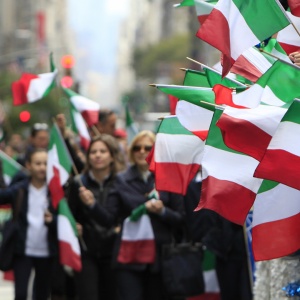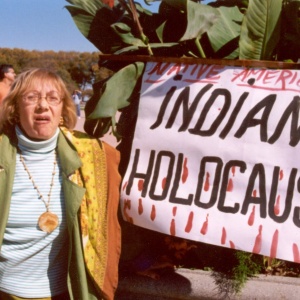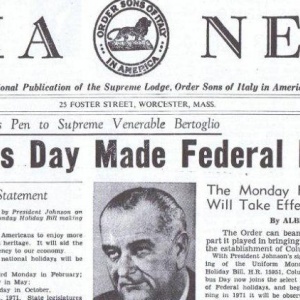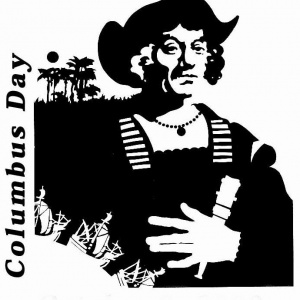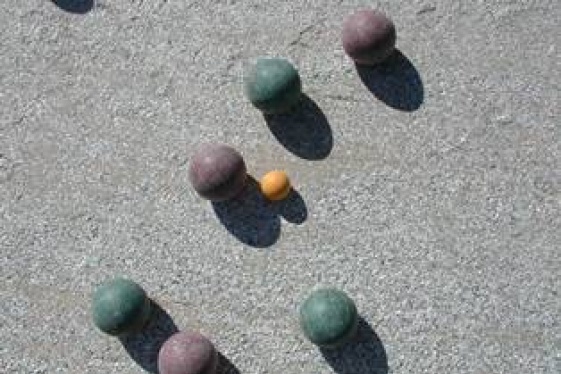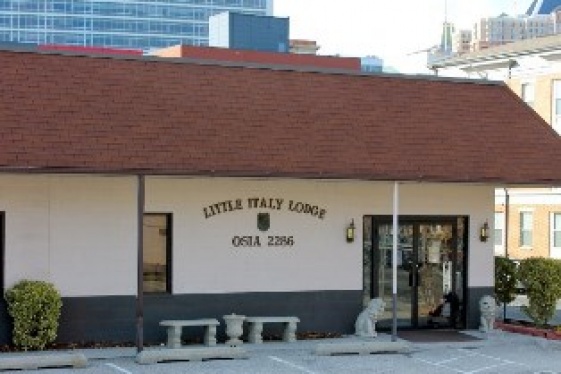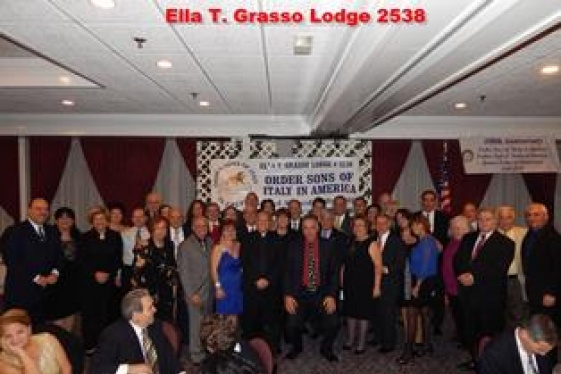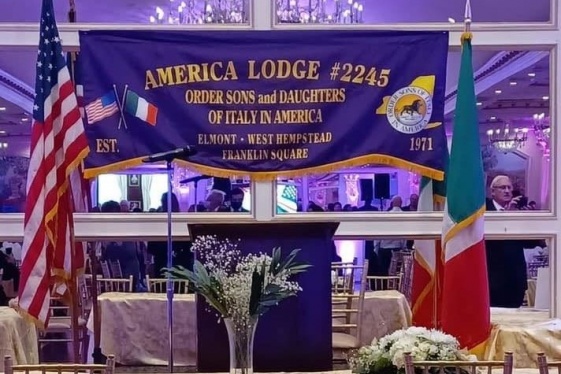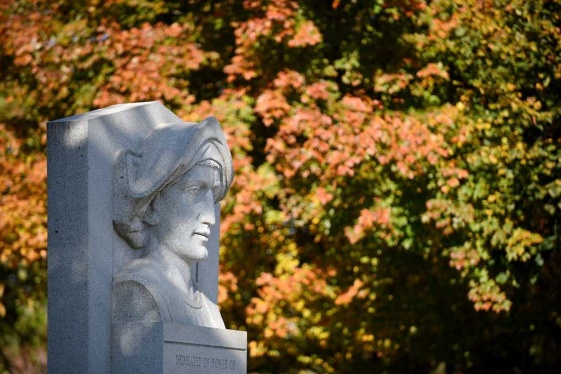
Dona De Sanctis (expert on Christopher Columbus)
In difesa di Cristoforo Colombo e del Columbus Day

In the United States there are 144 places named after Columbus: cities, towns, lakes, rivers, provinces, villages, townships, counties and of course the District of Columbia. America also has more than 200 statues, busts, monuments, memorials, bas reliefs dedicated to him; while it's impossible to count paintings and other artworks. Nevertheless, in the United States today Christopher Columbus is under attack. It is something growing fast year by year: municipalities are canceling Columbus Day, replacing it with Indigenous People's Day; op-ed in the main newspapers call Columbus "the Hitler of the 15th century"; statues of Columbus are vandalized in several parts of the country.
To know more about this fundamental topic that is dividing the Italian American community, we welcome today Dona De Sanctis, who is the only person to have worked – and with important responsibilities - for the two biggest Italian American organizations, NIAF and OSIA. We are very thankful to her for this opportunity.
In 2005 the Order Sons of Italy in America published the study "Columbus: Fact vs. Fiction". Dona, you were OSIA Deputy Executive Director at that time, and you were the one who prepared the study. Please tell us more about this
I researched and wrote this study about 12 years ago because, like many Italian Americans, I was concerned about the way Columbus was being taught in American schools. When I was growing up in New York City, my teachers presented Columbus as an intrepid explorer, who believed in himself and his abilities. He proved the earth was round and that one could sail across a huge ocean and survive. His character was something we were supposed to admire and emulate.
Today, however, he is depicted as a cruel, bloodthirsty exploiter of native cultures and has become the poster boy for man's inhumanity to man. His character was defamed and his accomplishments demeaned. I wanted to set the record straight.
This study is now on the osia.org website and can be downloaded for free. I have heard that some teachers use it to give a more balanced portrayal of Columbus than is now found in the textbooks our children study from. Parents should download the study and discuss it with their children ... especially in October.
The study also stresses how unfair it is to judge a 15th century man by 21st century values. In Columbus's time, Europeans suffered often-gruesome fates: they were drawn and quartered; burned at the stake (Joan of Arc), thrown into dungeons for life; poisoned, oppressed, and even enslaved. We have come a long way from those times. Columbus needs to be studied in the context of his time not ours.
What did the study reveal about Columbus?
It reveals his contributions to navigation, his treatment of the Indians, his deep religious faith, and his importance historically. It also supports the argument that we should celebrate Columbus Day.
Perhaps his greatest accomplishment was that he was the first to open permanent relations between the American continent and Europe. As a result, over the centuries since his four voyages, millions of Europeans have come to America. They helped build this nation with their hard work and strong values. America has an enormous debt to its European immigrants, the first of whom was Columbus.
The study also reveals the unbalanced portrayal of Columbus's relations with the Indians. Historians have focused on the punitive measures Columbus took when the Indian tribes failed to produce the gold he was contracted to send to Spain. This, unfortunately, is true. They also accuse him of being a slave trader and a racist. This is untrue.
Columbus never bought or sold slaves. And, far from a racist, in his captain's logs, he describes the Indians he found as being handsome, well formed, generous, and intelligent. Our children never learn how Columbus defended the Tainos, a peaceful tribe that was being attacked by the Caribs and Cannibs, who killed the men and enslaved the women and children. The Cannibs, who gave us the word "cannibal", were particularly barbaric. In gratitude, one Taino chieftain made Columbus a blood brother. So while it is true that Columbus was cruel to Indians who worked for him, he was a savior to others. Both sides of the story need to be told, which is what the study attempts to do.
Why does Columbus matter?
Columbus was a European born on a continent that has made enormous contributions to science, medicine, art, music, law, philosophy, and literature over the centuries. Greek democracy, Roman law, Judeo-Christian ethics and the belief that "all men are created equal" are just a few of the European pillars of civilization that have helped make America what it is today. So Columbus matters not just for his historical significance, but also as a symbol of what Europe and its people have contributed to the world and especially to these United States of America.
I've often read the phrase "Columbus was no saint", to admit that he had his flaws. But there's a more interesting and almost unknown story about this topic, right?
In 1882, a group of Irish American Catholics in Connecticut founded a fraternal organization they called the Knights of Columbus. Its mission was to help the needy and support Catholicism. They named it in honor of Columbus not only because he was Catholic, but also because he discovered the New World. For this reason, Columbus was considered one of the most important figures in America's young history along with Washington, Jefferson, and Benjamin Franklin.
Shortly after the Knights of Columbus was formed, Italian Americans launched a campaign to have the Italian explorer canonized as a saint in the Roman Catholic church because his logs revealed he saw bringing Christianity to the Indians as part of his mission in the New World. The Knights of Columbus supported this initiative.
A papal inquest into Columbus's life was opened but ultimately the Church rejected his candidacy for sainthood because Columbus had had a 20-year relationship with Beatriz Enriquez de Harana who bore him an illegitimate son, Ferdinand, in 1488. They never married and even though Columbus was faithful to her and provided for her in his will, the Church decided that he was not a candidate for sainthood.
What should Italian American communities do to defend Columbus Day?
Italian American communities are already defending this federal holiday by holding parades and other celebrations across the nation. They need to be more active in contacting their elected officials, engaging their support for the holiday and what it represents to all Italian Americans. This is a political issue not a cultural one. Special interest groups representing minorities in towns, cities and states have been using Columbus Day and the defamation of Columbus to further their own political and social agendas. We Italian Americans, the fifth largest ethnic group in the US, need to organize as well, marshalling our political clout to preserve this holiday. This is being done here and there. We need to do it on a much larger and more unified scale.
Are Italian Americans the only group it is not politically incorrect to stereotype?
I don't say we are the only group, but I believe that, at 20 million strong, we are certainly the largest group. For decades Hollywood and television have been making huge amounts of money by denigrating our culture and presenting us as either gangsters or uneducated buffoons. There has never been a balanced portrayal of us to the larger American public. In a sense, our reputation has been defamed much as Columbus's has!
What is the fate of Columbus Day?
I don't think it will be abolished, but as we have seen, it has certainly been diminished. Schools choose to stay open on this federal holiday; some cities and states have renamed the holiday to honor Native Americans; and controversy continues to swirl around Columbus as an important historical figure.
But today, more than 500 years after his first voyage, the holiday named for Columbus is really a celebration of Italian Americans and their contributions to America. This is a little-known story ... even among Italian Americans themselves. So I think that while we should keep the name "Columbus Day" we should subtitle it, "A Salute to Italian Americans, their history and contributions." That should be the theme of Columbus Day parades, and how Columbus Day should be regarded in all 50 States.
And it shouldn't stop with Columbus Day. Italian American parents need to insist that their children learn more about the history of Italians in America. That should be discussed at the dinner table. Books on Italian Americans should be in every family's library. And students of all ages ... from elementary school through college should be encouraged to research and write on Italian American topics as much as possible.
Only through educating our children and ourselves can we become ambassadors of our culture to our neighbors, teachers, elected officials and the larger American public. We are much more than pizza, meatballs and spaghetti. Much, much more!
You may be interested
-
2015 Bocce Bash!!
Please join Mia Maria Order Sons of Italy in America Lodge #2813 as we host the 2015...
-
2015 scholarship competition
The La Famiglia Scholarship committee is pleased to announce the financial aid competition...
-
A wreath for Columbus and three crowns for t...
The Columbus Day Committee of Atlantic City along with the Bonnie Blue Foundation annually...
-
Italian American Culture Night
Tuesday, April 14 - 6.30 pm EDTSt. James Church Rocky Hill - 767 Elm St, Rocky Hill,...
-
Sons of Italy Wine Tasting Series
Saturday, August 1 - 12.30 EDT / Valenzano Winery - 1090 Route 206, Shamong, New...
-
'America lodge' holds 50th anniversary dinner
The Order Sons and Daughters of Italy in America Lodge 2245 held a celebratory dinner on S...
-
'Atmosphere of anger' in Glen Rock and beyond...
The debate over turning Columbus Day into Indigenous Peoples’ Day has people riled up on b...
-
'Celebrating the Italian Woman' is 2013 theme
The 2013 Columbus Italian Festival will celebrate and showcase all things Italian during i...






